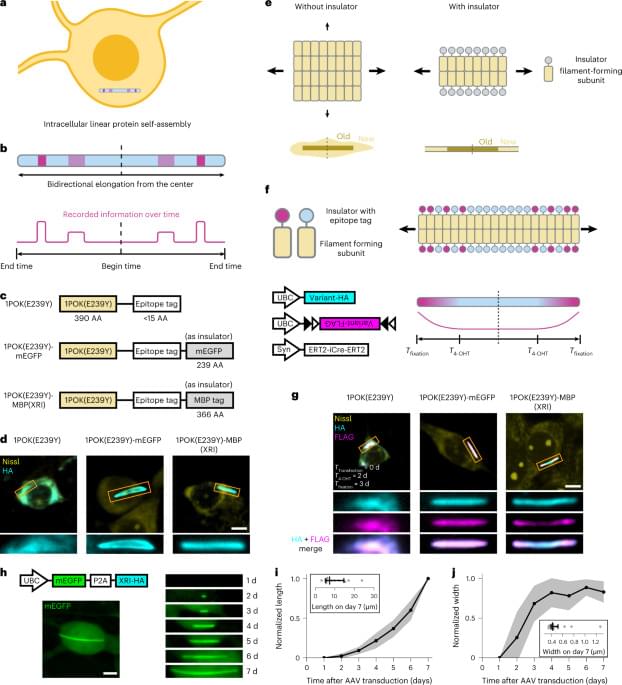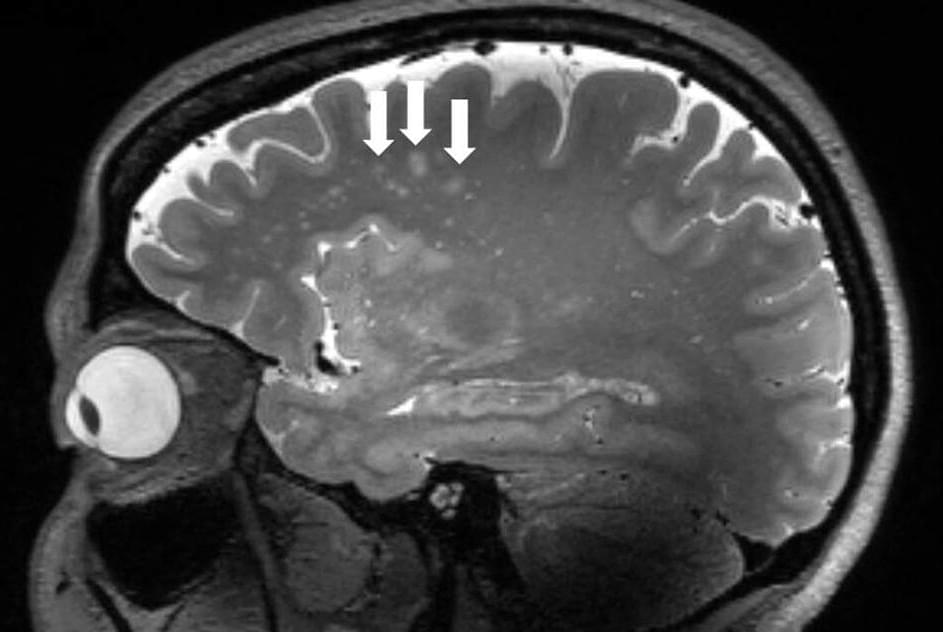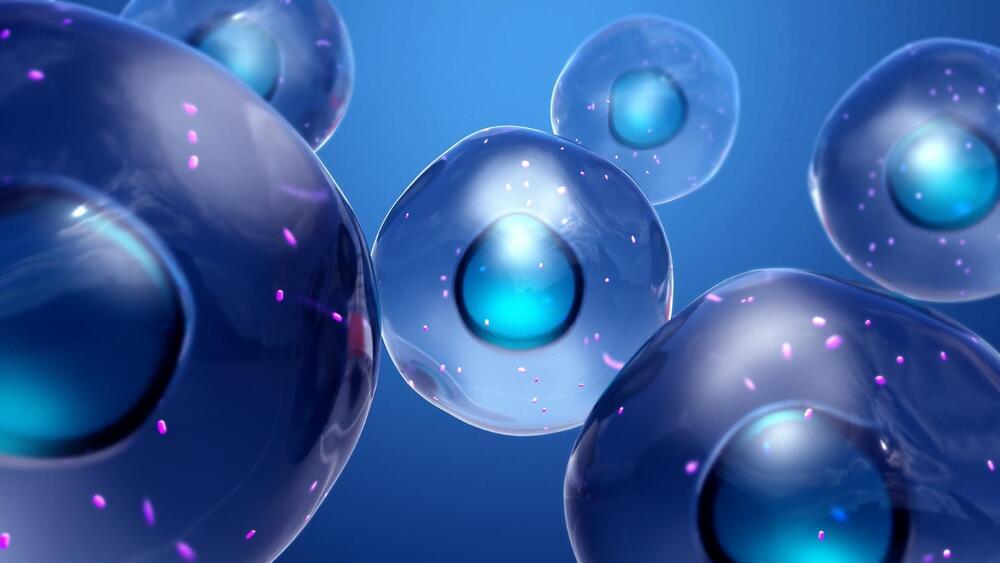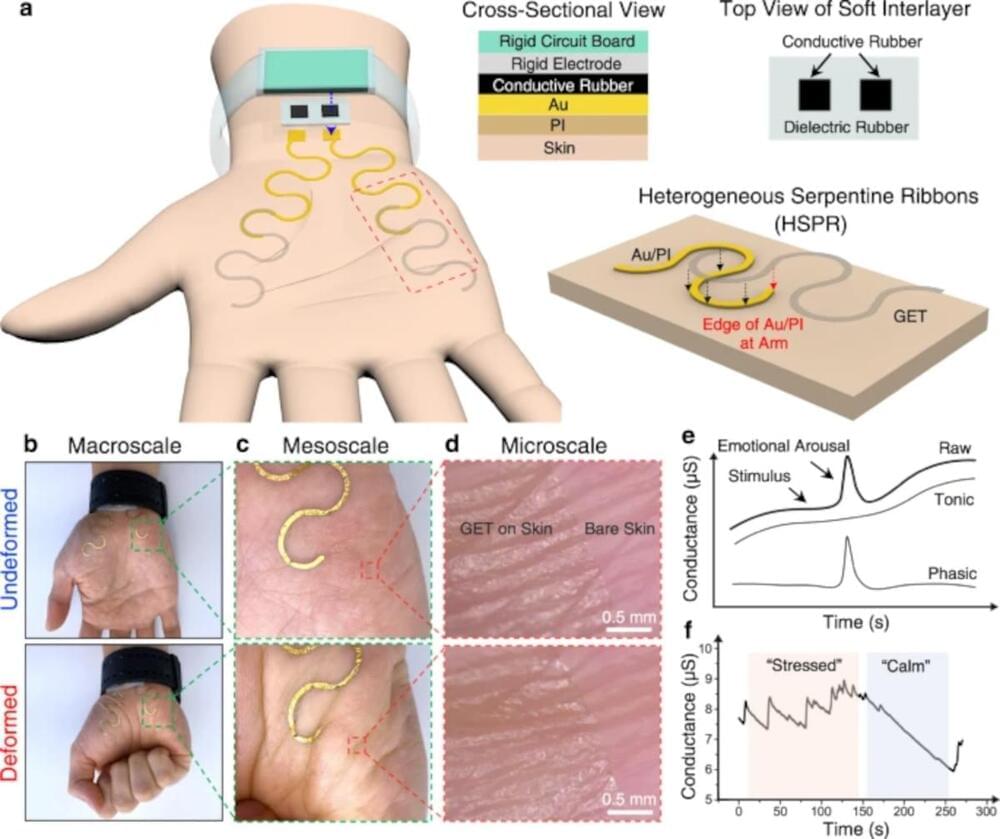Archive for the ‘biotech/medical’ category: Page 852
Jan 3, 2023
Are Naked Mole-Rats Immortal?
Posted by Joe Bennett in categories: biotech/medical, life extension
When it comes to longevity in the animal kingdom, the Naked mole-rat is often touted as one of the longest living animals known to man, and some say that they functionally do not age, only ever dying of disease or predation. In this article we will investigate these claims, and discover what exactly is so exciting about these aesthetically challenged rodents which has made so many researchers so optimistic about the future of human longevity.
Are Naked Mole-Rats Immortal?
Let’s dispel one of the largest misconceptions about naked mole-rats (Heterocephalus glaber) before we dive into what makes these rodents so interesting. No, naked mole-rats are not immortal in any sense of the word. First documented in 1,842 by German naturalist Eduard Rüppell, we have formally studied this species of rodent for over 180 years, and we have yet to see any immortal naked-mole rats running around, in the wild or otherwise. Neither have we seen a naked mole-rat coming close to the longevity enjoyed by our own species, let alone the longevity enjoyed by other longer lived species such as the giant tortoise. However, it is not the lifespan itself that is so remarkable about the naked mole-rat, but rather its relative longevity compared to other rodents that makes the naked mole-rat so interesting.
Jan 3, 2023
Revolutionary MRI Technology Uncovers Stunning Brain Changes in Migraine Sufferers
Posted by Paul Battista in categories: biotech/medical, neuroscience
For the first time, a new study has identified enlarged perivascular spaces in the brains of migraine sufferers. Results of the study were presented recently at the annual meeting of the Radiological Society of North America (RSNA).
“In people with chronic migraine and episodic migraine without aura, there are significant changes in the perivascular spaces of a brain region called the centrum semiovale,” said study co-author Wilson Xu, an M.D. candidate at Keck School of Medicine of the University of Southern California in Los Angeles. “These changes have never been reported before.”
Migraine is a common, often debilitating condition, involving a severe recurring headache. Migraines may also cause nausea, weakness, and light sensitivity. According to the American Migraine Foundation, over 37 million people in the U.S. are affected by migraine, and up to 148 million people worldwide suffer from chronic migraine.
Jan 3, 2023
MIT researchers developed self-assembling proteins that can store ‘cellular memories’
Posted by Gemechu Taye in categories: biotech/medical, neuroscience
The proteins can record histories of cellular events.
Researchers from MIT developed a technique to induce cells to record the history of cellular events in a long protein chain that can be imaged using a light microscope. The technique could help understand the critical steps involved in the processes, such as memory formation, response to drug treatment, and gene expression.
Studying the molecular processes within cells can provide important insights into their function and how they contribute to the overall functioning of an organ.
Jan 3, 2023
Scientists have revealed a link between drinking enough water and aging
Posted by Gemechu Taye in categories: biotech/medical, life extension
“Proper hydration may slow down aging and prolong a disease-free life.”
It is an indisputable fact that drinking water is beneficial for our health. In addition to its contribution to metabolism, it also plays an important role in keeping the skin moist. According to the National Institutes of Health’s (NIH) new study, drinking water also links people to age in a healthy way.
As stated in the release, researchers looked at the relationship between several health markers and blood salt levels, which rise when fluid intake declines. The study included health information acquired from 11,255 participants over a 30-year period.
Continue reading “Scientists have revealed a link between drinking enough water and aging” »
Jan 3, 2023
First Fully Complete Human Genome Has Been Published After 20 Years
Posted by Dan Breeden in categories: biotech/medical, genetics
The first fully complete human genome with no gaps is now available to view for scientists and the public, marking a huge moment for human genetics. Announced in a preprint in June 2021, six papers have now been published in the journal Science. They describe the painstaking work that goes into sequencing an over 6 billion base pair genome, with 200 million added in this new research. The new genome now adds 99 genes likely to code for proteins and 2,000 candidate genes that were previously unknown.
Many will be asking: “wait, didn’t we already sequence the human genome?” In part, yes – in 2000, the Human Genome Sequencing Consortium published their first drafts of the human genome, results that subsequently paved the way for almost every facet of human genetics available today.
The most recent draft of the human genome has been used as a reference since 2013. But weighed down by impractical sequencing techniques, these drafts left out the most complex regions of our DNA, which make up around 8 percent of the total genome. This is because these sequences are highly repetitive and contain many duplicated regions – attempting to put them together in the right places is like trying to complete a jigsaw puzzle where all the pieces are the same shape and have no image on the front. Long gaps and underrepresentation of large, repeating sequences made it so that this genetic material has been excluded for the past 20 years. Scientists had to come up with more accurate methods of sequencing to illuminate the darkest corners of the genome.
Jan 3, 2023
Parkinson’s Breakthrough: Scientists Have Identified a Key Molecule
Posted by Paul Battista in categories: biotech/medical, neuroscience
Adenosine, a neurotransmitter, has been found to act as a brake on dopamine, another neurotransmitter involved in motor control, by researchers at Oregon Health & Science University. The findings, which were published in the journal Nature, reveal that adenosine and dopamine operate in a push-pull dynamic in the brain.
“There are two neuronal circuits: one that helps promote action and the other that inhibits action,” said senior author Haining Zhong, Ph.D., a scientist with the OHSU Vollum Institute. “Dopamine promotes the first circuit to enable movement, and adenosine is the ‘brake’ that promotes the second circuit and brings balance to the system.”
The discovery has the potential to immediately suggest new avenues for drug development to treat the symptoms of Parkinson’s disease is a movement disorder that is believed to be caused by the loss of dopamine-producing cells in the brain.
Jan 3, 2023
Triplets graduate from Georgia Tech at 18 with neuroscience degrees
Posted by Dan Breeden in categories: biotech/medical, health, neuroscience

ATLANTA — Three years after being named the first-ever co-valedictorians at West Forsyth High School, the Kashlan triplets graduated from Georgia Tech at 18-years-old.
Adam, Zane, and Rommi Kashlan earned neuroscience degrees with minors in health and medical sciences. They completed their degrees a year early and with honors. The trio will head to Boston to work and conduct research at Harvard Medical School.
Continue reading “Triplets graduate from Georgia Tech at 18 with neuroscience degrees” »
Jan 3, 2023
Graphene e-tattoo can measure stress levels
Posted by Dan Breeden in categories: biotech/medical, materials
Researchers at The University of Texas at Austin and Texas A&M University have used electronic tattoo (e-tattoo) technology to measure stress levels, by attaching a device to people’s palms (AKA electrodermal activity or EDA sensing). The researchers created a graphene-based e-tattoo that attaches to the palm, is nearly invisible and connects to a smart watch. Image In June 2022, researchers from the same universities also developed a graphene-based electronic tattoo that can be worn on the wrist for hours and deliver continuous blood pressure measurements at an accuracy level exceeding nearly all available options on the market today.
Jan 3, 2023
Artificial DNA can kill cancer
Posted by Nicholi Avery in categories: biotech/medical, chemistry
𝐑𝐞𝐬𝐞𝐚𝐫𝐜𝐡𝐞𝐫𝐬 𝐚𝐭 𝐭𝐡𝐞 𝐔𝐧𝐢𝐯𝐞𝐫𝐬𝐢𝐭𝐲 𝐨𝐟 𝐓𝐨𝐤𝐲𝐨 𝐢𝐧 𝐉𝐚𝐩𝐚𝐧 𝐡𝐚𝐯𝐞 𝐮𝐬𝐞𝐝 𝐚𝐫𝐭𝐢𝐟𝐢𝐜𝐢𝐚𝐥 𝐃𝐍𝐀 𝐭𝐨 𝐭𝐚𝐫𝐠𝐞𝐭 𝐚𝐧𝐝 𝐤𝐢𝐥𝐥 𝐜𝐚𝐧𝐜𝐞𝐫 𝐜𝐞𝐥𝐥𝐬 𝐢𝐧 𝐚 𝐧𝐞𝐰 𝐰𝐚𝐲.
The method was effective in lab tests against human cervical cancer-and breast cancer-derived cells, and against malignant melanoma cells from mice. The team created a pair of chemically synthesized, hairpin-shaped, cancer-killing DNA. When the DNA pairs were injected into cancer cells, they connected to microRNA (miRNA) molecules that are overproduced in certain cancers.
Once connected to the miRNA, they unraveled and joined together, forming longer chains of DNA which triggered an immune response. This response not only killed the cancer cells but prevented further growth of cancerous tissue. This method is different from conventional anticancer drug treatments and is hoped to bring about a new era of drug development.
















